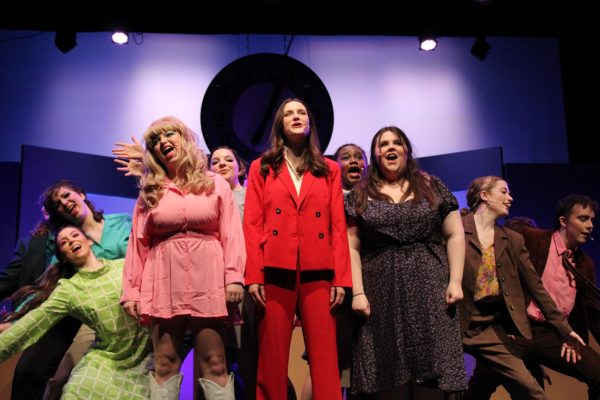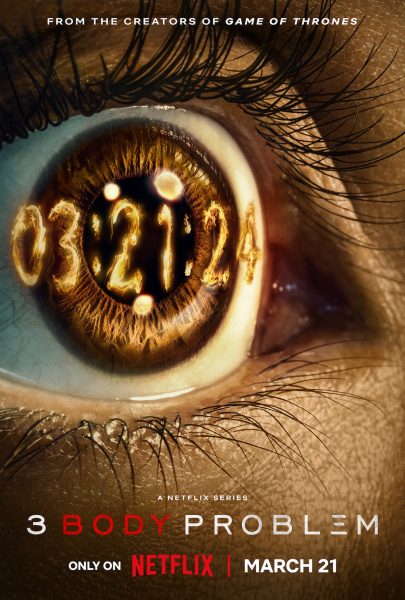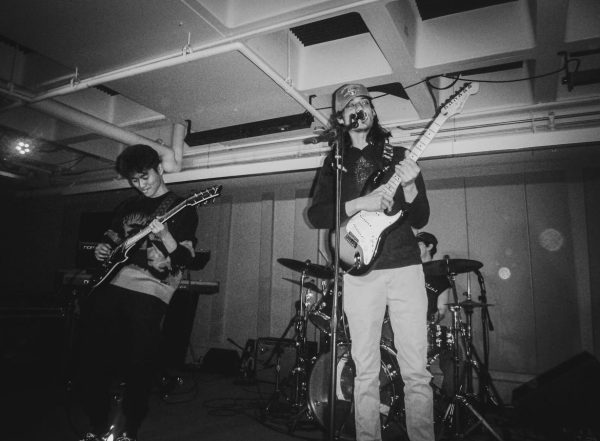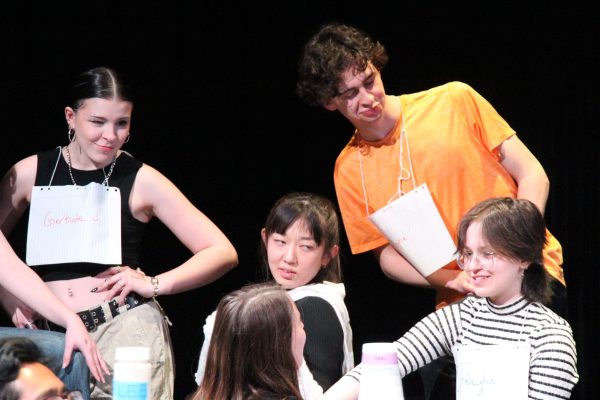When the magic ends
Barking Spider Tavern took its last bow after its 30th anniversary
It was 6 p.m. on Sunday evening. The sun hadn’t shown any sign of sinking and the last trace of summer, the olive colored trees with their crowns dabbed by bright autumn yellow, still firmly grasped Cleveland. In University Circle, everywhere the late summer breeze blew was serene, except the narrow alley next to L’Albatros. There, although obscured by clamoring chats and lively folk music, subtle sadness permeated a large crowd of patrons. After 30 years of companionship, these patrons were here to bid farewell to an old friend, the Barking Spider Tavern, which, after Sunday, Sept. 18, is closed, and its future is uncertain.
With artwork covering the walls and a wood-burning fireplace, the semi-Bohemian vibe of the tavern has attracted community members, artists, free-thinkers and music lovers. Since it’s opening in 1986, the 30 year journey of this family business was shared by the owners, musicians, community members and students at Case Western Reserve University together.
The Owners
The news to close the Barking Spider Tavern, or the Spider, as many patrons call it, came as a surprise to all. The decision was first released by Jenna Juredine and Bruce Madorsky on Thursday, Sept. 15, on the bar’s website. In the announcement, Juredine and Madorsky explained that the 30th year anniversary is an appropriate milestone to conclude the the journey of this music venue.
“It would be best to end on a high note, an annual anniversary celebration with friends, great local musicians, beer and a potluck,” Juredine and Madorsky wrote in the announcement.
Just like her father Martin Juredine, who founded the Spider, Jenna is always the person who kept order in the tavern when bands were playing. However, after getting married and expecting a baby in a few months, Jenna feels that she could not make the same amount of commitment to the tavern than before, thus the closure was decided. After taking care of the tavern for five years, Jenna will now shift focus to her family.
“The tavern takes a certain lifestyle to maintain, and I am not longer able to dedicate the amount of time needed to keep it going,” said Jenna.
Jenna took over the Spider shortly after her father Martin’s death in 2011. She was the youngest daughter in the family and had spent much time in the tavern, among the musicians, artists and thinkers. Jenna maintained the Spider’s tradition to respect artists and stay humble. In the past 30 years, the tavern only sold beer and wine and nothing else. There was no cover charge either. Anyone could walk in the Spider to enjoy free music and all he or she needed to pay for was the drink. It was this simple style of running the bar that charmed many patrons and musicians.
The vision that Martin had for the Spider, a “safe house for musicians and music lovers” as it is described in the announcement, is the faithful portraiture of this music venue. It also made the farewell extremely difficult. On Sunday, hundreds of people gathered to celebrate the tavern’s anniversary and also said goodbye to it. They talked, laughed and enjoyed their last night at the Spider, wondering what to do in the future without it.
The Patrons
Dennis Trachita had been frequenting the Spider since 1986, the year it opened. He used to come here four nights a week, for “the fabulous music” he emphasized. It was from those many visits that he got to know Martin. He remembered that after the tavern closed up they used to hang out, when Martin “poured short ones for us late into the hours and musicians would stay there and just do like an acoustic jam, two, three or four in the morning, and we would be drinking our draught beer,” Trachita laughed.
The tavern was a gathering place for Trachita and his friends. It was the only venue where they could run into one other, play games in the game room, listen to music and dance the night away. Now that the tavern is gone, he does not know if there is any chance he and his friends can hang out again.
“We are grieving, we are heartbroken. There are dozen of us that only see each other here and we are not gonna see each other anymore,” lamented Trachita as he took another sip of beer.
For Andra Saint Cyr, who grew up around the University Circle and had been visiting the tavern since 1986, there is more than friends that will be missed after the Spider closes. Saint Cyr’s father was a music lover and a close friend of Martin’s. After his father passed away on Feb. 1, 2002, the Juredine family closed the bar to attend his funeral. Saint Cyr remembered: for two years after his father’s death, every Sunday the Spider would do a Saint Cyr Jazz jam, dedicated to his father. Inside the bar, right above the stall where Saint Cyr’s father used to sit, his photo was hung on the wall, the first picture tribute to a patron.
Martin died on the same date as Saint Cyr’s father, in 2011. It was during one of the regular visits to the Spider to commemorate his father that Saint Cyr learned about Martin’s death. After that he continued going to the tavern to commemorate his father.
“Every year, around that time [Feb. 1], I come visit Pa, and last week I came to do my annual end of summer sit[ing] on the patio visit, without knowing that a week later they would announce they are closing up the bar,” said Saint Cyr slowly. He then took a pause before continued. “That’s why I am here today to see old friends, and say goodbye to Pa’s spirit in the bar, this evening.”
Trachita, Saint Cyr and many other patrons still do not know what to do after the Spider closes. “Stop drinking,” Saint Cyr joked. Many hope that the CWRU administration, which owns the land, will not knock the old carriage house down.
John Harmon, a Cleveland native and also a long time patron of the Spider, wished that the university can seek another tenant who has the same vision as the Juresdines for a music venue. “We are all very concerned about what Case might do,” said Harmon. “It would be very sad if they tear these buildings down and put up a parking lot, or put up some modern buildings.”
The students
Zach Kuzemka, an alumnus and also a brother of Phi Gamma Delta (Fiji), came back to the University Circle to say goodbye to the Spider after he heard the news on Thursday.
“I was sitting at my desk at my office and I got like four texts in like 15 minutes,” Kuzemka said. “I didn’t see it closing so soon. it was one of those places I wish when I was thirty-five I could come back, when I was forty-five, and live in some place outside of Cleveland I could come back and enjoy.”
He remembered his first time at the Spider the night he turned 21. With the Fiji fraternity house 10 feet away from the Spider, some Fiji brothers would bring their littles to the Spider to celebrate their coming of age. Kuzemka instantly fell in love with the bar when he first went there, and since then he had been visiting two or three times a week.
The relaxing atmosphere and frequent live music were what he enjoyed the most. “There is no place I have a connection to as much as the Spider,” commented Kuzemka. “This place has the most impact on me. It was always enjoyable, I have never had a bad time here.”
Kuzemka also mentioned that a lot of Fijis are upset about the closure. The warm culture and comfortable setting of the Spider forms part of their cherishable memories at CWRU. On Saturday night, some Fijis came to the Spider to officially say goodbye. “I will forever cherish the music I heard and the time I spent within those wooden walls,” Ryan Brubaker, one of the Fiji brothers, said in an email.
The musicians
Michael Rotman, a musician that has been playing at the Spider for more than 20 years, acknowledged Martin and the Spider as an important step in his music development. He recalled when there were very few people who supported his music and gave him a chance. However, Martin invited him and his band to the Spider and treated them with respect, for which Rotman was very grateful.
“As a musician and as an artist, to feel that kind of respect from the proprietor was something that you don’t experience,” said Rotman. “It’s something very special, unlike anywhere else you play.”
Rotman felt at home at the Spider, and he is not alone. Ray McNiece, a poet and a musician, started his band at the Spider. He recognized how the inclusiveness of the tavern made it possible for his performance to be seen by the audience. His band combined poetry, music and theatrical performance together, but their work was usually underappreciated because it was not mainstream. It was at the Spider that McNiece found his audience.
“You can always make sure that people were listening,” said McNiece. “People came here to get the nourishment, the original, creative energy, that you don’t get in packaged bar.”
Both Rotman and McNiece recalled Martin sitting at the back of the bar, focusing on the music, and “shushed people up” when the patrons were too loud. The respect and appreciation these musicians felt made the Spider a “dream place” for artists, described McNiece.
“I was sad for the musicians that will never get to play here,” said Rotman. “because to feel support rather than being taking advantage of, by either the music industry or club owners, it’s empowering.”
On Sunday, McNiece brought the poem he wrote for the Spider to the celebration and left it there. He still could not recover from the shock he felt when knowing that the Spider was closing. “It was magic. it’s like when the magic ends, what do you do then.”
As the night ended, Mo’Mojo belted out on stage, proclaiming, “I am feeling comfortable…” The crowd mouthing along with the band to the intro from their song “Everything is as it Should Be.”
The song had an undertone of nostalgia, as long-time patrons filled the bar to laugh, drink, reminisce; listen to the music. It was one of the last performed songs Sunday night. Closing into midnight, as Jenna let everyone know it was time to go, there was a hesitation in the air. The Spider seems to have tapped into the community in a genuine way, through its passion for music, respect for a love of live music and free expression.
Additional reporting by John Brogan

Celia Wan is a sophomore majoring in mathematics and history. She joined The Observer in the fall of 2015 and became the news editor at the end of her...














